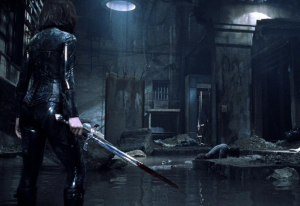Australia has been in the news as of late, and it has been thanks to an odd anime controversy. Last week, reports went live overseas which confirmed a senator named Stirling Griff has a bone to pick with how anime is rated. The politician took to parliament to ask Australia‘s Classification Board to reconsider the way it rates any anime depicting child exploitation, but it seems that request has been given a hard pass.
Videos by ComicBook.com
As reported by Escape Zero, the Classification Board has responded to the request. This comes after Griff said the organization decided on anime ratings “in isolation to criminal law.” Using shows like Eromanga-sensei as an example, Griff blasted anime and manga series for depicting child exploitation of various sorts. Now, the director of the Classification Board is pushing back on Griff’s appeal.
Maragaret Anderson says it is not the job of the board to assess “genre type” when it comes to ratings. For anime in particular, the Classification Board isn’t responsible for assessing whether a show depicts ‘real’ people. She did say she’s been long aware of the complaints which Griff shared with his colleagues. Currently, Australian Classification Law does not extend to manga, but anime is classified under the same umbrella which films in Australia are rated.
“The Film Guidelines require an assessment of impact of six classifiable elements (themes, violence, sex, coarse language, drug use and nudity); not an assessment of the genre type or whether the film depicts ‘real’ people or animated characters,” the director said.
For now, it seems manga is safe in Australia, but that could change is the medium is added to the Classification Board in writ. If that happens, the controversial content which Griff mentioned in his motion could be restricted. Fans will have to wait and see how the future shapes out for manga abroad, but the Classification Board in Australia is ready to defend its practices even in the face of criticism. You can read the organization’s full statement below:
“The Classification Board (the Board) is aware of concerns about the classification of certain Japanese anime genre films, specifically Sword Art Online: Extra Edition, No Game No Life, and Eromanga Sensei Volumes 1 & 2, and about comic books featuring manga style drawings not being classified by the Board.
The Board classifies films in accordance with the Guidelines for the Classification of Films (the Film Guidelines). There are not specific or separate guidelines to classify animated films. Films can be classified in the classification categories from G to R 18+ (with the X 18+ category limited to films containing sexually explicit activity). If a film contains content that exceeds the scope and limits of content that is permitted in the R 18+ category, it will be Refused Classification (RC). Films in the anime genre have been classified across a range of categories, including M, MA 15+, R 18+ and RC.
The Film Guidelines require an assessment of impact of six classifiable elements (themes, violence, sex, coarse language, drug use and nudity); not an assessment of the genre type or whether the film depicts ‘real’ people or animated characters. The Guidelines state “Context is crucial in determining whether a classifiable element is justified by the story‑line or themes. This means that material that falls into a particular classification category in one context may fall outside it in another.”
In addition to determining the classification, the Board must determine consumer advice for a film. The purpose of consumer advice is to draw attention to only the most impactful and frequent content relating to the six classifiable elements. Therefore, not all the content in a film will warrant consumer advice. The classifications for the named films are: Sword Art Online: Extra Edition is classified M with consumer advice ‘sexualised imagery, sexual references and animated violence. No Game No Life is classified MA 15+ with consumer advice ‘strong sexual themes’. Eromanga Sensei Volumes 1 & 2 are classified MA 15+ with consumer advice ‘strong sexual themes’.
Regarding comic books, only submittable publications are required to be classified. The Board classifies submittable publications in accordance with the Guidelines for the Classification of Publications. It is the responsibility of distributors of comic books to decide if the comic book should be classified. States and territories are responsible for classification enforcement legislation which includes offences for selling an unclassified submittable publication.
The Board is aware that a campaign has been launched about the sale of Japanese manga and anime in Australia and that in the context of the Government’s Review of Classification Regulation this issue has been raised. The Board welcomes this review.”
What do you make of this controversy? Do you understand the concern? Let me know in the comments or hit me up on Twitter @MeganPetersCB to talk all things comics and anime!








